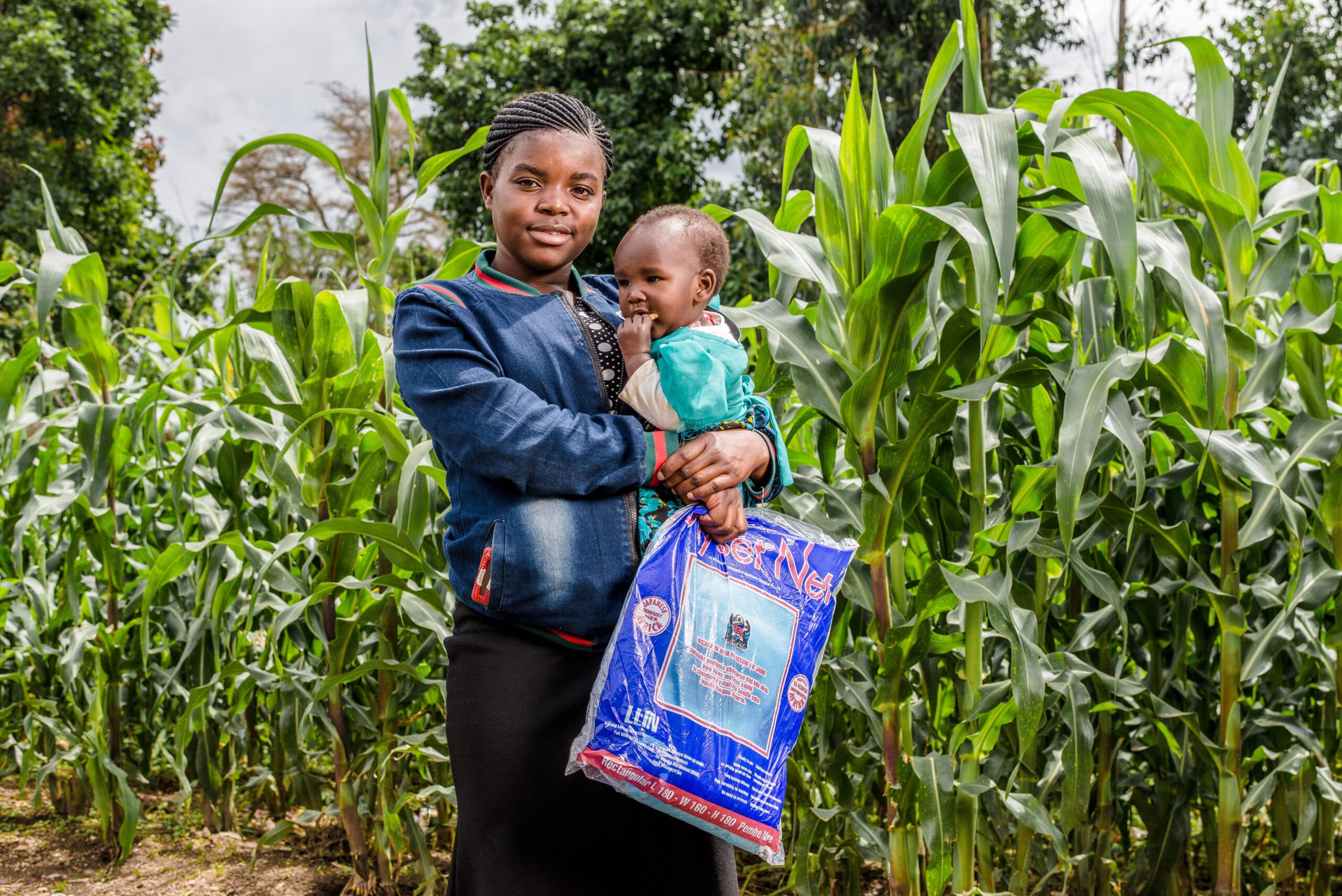The Johns Hopkins Center for Communication Programs has handed off its work overseeing the distribution of five million insecticide-treated bed nets annually to pregnant mothers and young children to the Tanzanian government.
As of July 2024, after years of preparation, support and training, the task of providing nets via health facilities – to some of the most vulnerable people in Zanzibar – is now being led by the government. This follows a similar handover in mainland Tanzania in 2022.
“This is a big achievement for us, and we completed the transition to the government earlier than we originally expected,” says CCP’s Ruth Msolla, director of field implementation for the CCP-led PMI Vector Control Project, supported by the U.S. President’s Malaria Initiative (PMI). “This is the mark of a successful, sustainable project.”
The PMI Vector Control Project has brought 19.5 million bed nets to Tanzanians through health facilities, schools, and targeted mass distribution campaigns over the last four years, all while preparing for the handover process to the government. About eight percent of nets in the country are distributed via health facilities.
“It’s big news, because the job that was being done by the private sector, overseen by our project, is now being done by the government itself,” Msolla says. “And that brings up the sustainability of the program when it comes to net distribution, that there’s a capacity in the government to distribute nets to the vulnerable population, because the pregnant women and the infants are the most vulnerable population in the country.”
Insecticide-treated bed nets are designed to prevent bites from mosquitos carrying the malaria parasite and have long been an effective anti-malaria tool. In Tanzania and Zanzibar, roughly eight million malaria cases were recorded in 2022, with more than 26,000 deaths from the disease.
Nets are distributed for free in three main ways to people across Tanzania and Zanzibar: to pregnant women during prenatal visits and measles-rubella vaccine appointments for nine-month-olds in health clinics; through school-based campaigns, where primary school students receive the nets; and during targeted mass distribution campaigns that issue nets to wider swaths of the population.
The PMI Vector Control Project hasn’t just helped with logistics. It has helped train local government employees in the mainland and Zanzibar who need to do the hands-on work required to make net distribution to pregnant women and young children successful. It has looked at where processes need to be improved and provided technical assistance in areas that were particularly challenging to tackle.
“We’ve been providing a lot of support, supportive supervision, to build up that process, to make sure that it’s going smoothly and continues to go smoothly,” says CCP’s Benjamin Kamala, the monitoring, evaluation and learning director for the PMI Vector Control Project.
Among other undertakings, the PMI Vector Control Project has also laid some of the groundwork for school and targeted mass distribution campaigns to be sustainable in the near future.
The PMI Vector Control Project ends in December 2024. CCP looks forward to identifying opportunities to continue to support the transition of mass and school campaigns in Tanzania .





